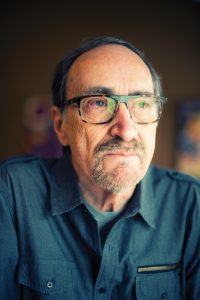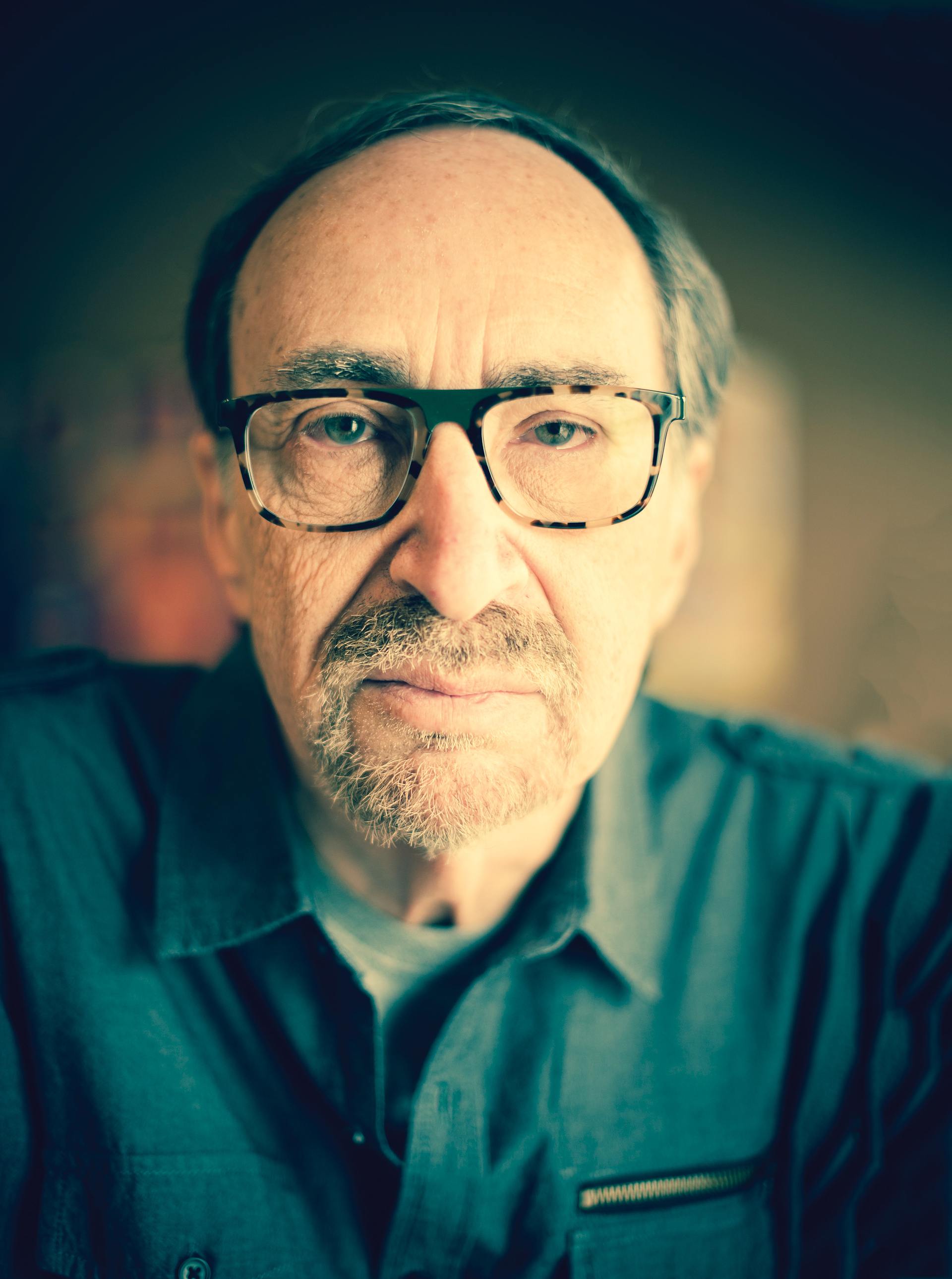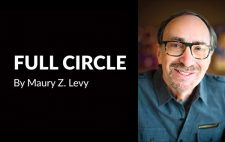 First I had a fever, and then I had chills. By Monday, it had been going on for a week. Fever and chills and sweats and fatigue. A lot of fatigue. Fatigue that made it harder to face the day. Fatigue that made it tougher to call into work. I was in bed for seven days and seven nights. I couldn’t sleep, I couldn’t eat, I couldn’t see any way out of this. I felt totally helpless.
First I had a fever, and then I had chills. By Monday, it had been going on for a week. Fever and chills and sweats and fatigue. A lot of fatigue. Fatigue that made it harder to face the day. Fatigue that made it tougher to call into work. I was in bed for seven days and seven nights. I couldn’t sleep, I couldn’t eat, I couldn’t see any way out of this. I felt totally helpless.
At first, I thought it was the flu. But it wasn’t the flu. And then I thought it was Lyme disease. But it wasn’t Lyme disease.
At 6 on Monday morning, my wife left to go to work. I was alone. Just me and my symptoms. I did what I did when I was sick, and I was sick often. I laid in bed and stared at the ceiling. By 7 o’clock, I felt a strong urge to go to the bathroom. The bathroom was 10 feet away from the bed. But it didn’t matter. My legs were so heavy, I couldn’t move them. My body was so fatigued, I couldn’t get up. Hard as I tried.
I made an emergency call to my wife. “You have to come get me,” I said. “I can’t move. I can’t get out of bed. There is something really wrong with me.”
She came home while I called the doctor. The doctor told me to come directly to the hospital; he would meet me in the emergency room. Forty minutes later, there were five people working on me. People taking blood, people taking urine, people taking X-rays.
Nothing. They found nothing. “We’re going to send you home,” my doctor said, “but we will watch this carefully. Do you think you can walk to the car?”
I summoned every ounce of energy I had. A nurse wheeled me to the front door and helped me stand up as my wife brought the car around. By the time we got close to home, I was feeling horrible again. My body felt limp. I couldn’t sit straight. I could barely talk.
“We have to turn around,” I said. “We have to go back to the hospital. They must have missed something.”
My wife just looked at me and then she took a deep breath. “Listen,” she said, “I was going to wait until we got home to tell you this, but the doctor thinks there’s nothing physically wrong with you.”
“How could that be?” I asked. “Look at me.”
She took another deep breath. “He said you’re having an anxiety attack,” she said. “He thinks you should see a psychiatrist.”
Psychiatrist? Nobody in my family had ever been to a psychiatrist. Nobody in my family talked about illness much. When my grandmother died, I asked what she died of. They wouldn’t tell me. “She was very sick,” they said.
I would find out years later that she had cancer. Colon cancer. The same disease that would claim my father. But in the early ’60s, no one talked about it.
But a mental illness? An illness that didn’t bleed, an illness that didn’t hurt? In the $9,500 row houses of Northeast Philly, no one even thought about mental illness. Let alone talk about it. There were the normal people, and there were the people in Byberry. Byberry was the state mental hospital a few miles away. People went into Byberry. Few ever came out.
My mother – her name was Rose – always wore black. On rare days she would go outside and work on her rose garden. On most days, especially the rainy ones, the cloudy ones or the ones when my father was traveling, she curled up on the sofa in an almost fetal position, and she didn’t go outside for days.
The neighbors would knock on the door. “Rose,” they said, “you should come outside. It’s nice out today.” All she would say is she didn’t feel well. “Is it your head? Is it your stomach?” they would ask. She would plead guilty to the first thing they said, just to get rid of them.
 She had led a tough life, my mother. She grew up in a house in Strawberry Mansion that didn’t have indoor plumbing. If you had to go to the bathroom in the middle of the night, you took a candle and walked around the house to the back yard. One night, when she was 9, she heard screaming. She ran downstairs and opened the door. Her little sister’s nightgown had caught fire, and she couldn’t take it off. My mother screamed for help but it was too late. Her little sister burned to death. In front of her eyes.
She had led a tough life, my mother. She grew up in a house in Strawberry Mansion that didn’t have indoor plumbing. If you had to go to the bathroom in the middle of the night, you took a candle and walked around the house to the back yard. One night, when she was 9, she heard screaming. She ran downstairs and opened the door. Her little sister’s nightgown had caught fire, and she couldn’t take it off. My mother screamed for help but it was too late. Her little sister burned to death. In front of her eyes.
So when I was a kid, I was never allowed to light matches. Or go near the stove. I couldn’t play outside with my friends without getting severe warnings not to fall, not to get overheated. If I didn’t listen, she would yell at me in front of anyone who had ears. She yelled a lot, my mother. She yelled at me when we were alone. She yelled at me in front of my friends, my friends who stopped coming to my house because of it.
Now I know that, in her own strange way, she was trying to protect me. But I didn’t know that then. The screaming has stayed with me to this day. Like a form of post-traumatic shock. If my wife would talk a little louder or the kids would be calling each other from another room, it would trigger a flashback, a really bad reaction. And I would yell back at them to stop. The kids would hate it. And their friends would stop coming over.
Worried about my reactions, I subconsciously developed a way to avoid people. Someone I worked with for a long time told me I was the most unapproachable person she’d ever met. “When I first saw you,” she said, “you looked like you wanted to kill me.”
I used to get my picture taken at a lot of different events. Photographers would always tell me to smile. “I am smiling,” I would say. And in my mind, I really was. But the message never got through to the 34 facial muscles that lift up to smile. I looked sad, I looked angry, I looked morose.
From the time I was very young, people thought there was something wrong with me. I didn’t talk a whole lot. I spent a lot of time looking out windows. But the pains in my stomach were the real trigger of attention. I would get them in the morning when I got to school. I would avoid playing with the other kids because my stomach felt like a tightly clenched fist.
I went to the nurse a lot. She couldn’t figure it out. My mother finally took me to the family doctor, who lived around the corner. He put me through all kinds of tests, such as tests were in the ’50s. Nothing physical showed up. He decided that I had a “nervous stomach.” He put me on a form of Librium, the tranquilizer. That’s when I was 9. I would take some form of that medication for the next 60 years.
It wasn’t until the ’90s, after that emergency trip to the hospital, that I was classified as having anxiety and depression. But I never talked about it. Not even to close friends. There was a stigma about depression. And I already had enough stigmas.
Then there were the panic attacks. Being in a room full of people and feeling like they were all staring at you, like they were all talking about you. Feeling that you couldn’t breathe and that you couldn’t stop sweating.
I felt like I was drowning and I couldn’t swim and there was no one who would save me.
In a panic attack, you suddenly know what it’s like to be afraid of your mind.
After years of study and years of treatment, I discovered the problem with depression. Bad marketing. I’m serious. Why name a disease after an emotion? “What do you have to be depressed about? You have a nice family, a good job. You’re just a little blue. You’ll sleep it off. You’ll feel better in the morning.”
Wrong. For me, every morning was a Monday. And I don’t like Mondays.
If the medical profession had called it Witherspoon’s disease or serotonitis, it would be accepted and understood. I have diabetes. Everyone understands that. My blood sugar doesn’t process properly. So, no chocolate cake for me.
What’s the difference between being depressed and having depression? Sometimes people say they have depression. No. You’re depressed. You’re sad because your dog died. You suffer from depression if you’re sad and there doesn’t seem to be a reason.
It took me a few years to learn that I’m not alone in this. Nearly 10 percent of American adults have depression. Alan Alda, Woody Allen, Alec Baldwin, Christian Bale, Halle Berry, Beyonce, Jon Bon Jovi, Terry Bradshaw, Barbara Bush. And those are just the As and Bs.
What do we do about it? We take medicine, we see doctors. I went to a psychiatrist for many years. It took a lot for me to do that. I used to think that psychiatrists were witch doctors. I used to feel that reaching out for help was a sign of weakness. That’s a guy thing. Like never asking for directions.
But a psychiatrist really helped me. Talking about the triggers, understanding why I do what I do, why I am what I am, was a tremendous tool for me. Most of all, it helped me come to a very important realization: I am not crazy.
But I am quirky. People have always thought it was odd that I get anxious over the little things. Talk in front of 50,000 people? No problem. But where am I going to park? Will there be too much traffic? Will I get there on time? People told me not to sweat the details. But my life was nothing but details. It’s a very deadening feeling. Like a bruise that never goes away.
So why am I telling you all this? Because there are people who need to know they are not alone. Because I just heard about a boy who went to the same high school as my kids. He was a good boy, active in the community, always helping others.
He was having a lot of trouble because he was being bullied. He couldn’t deal with it. He tried to get help from a number of people. But some ignored him, and others told him, “This too shall pass.” He felt he had no direction, no hope. And so he sunk. He sunk to a place he had never been before. To a place that, he thought, had no way out. He felt pain and he felt grief and he felt like he just couldn’t take it anymore.
Lost in the darkness, he decided there was only one thing left to do. And he did it. He was 15.
It is a horribly sad story. But it didn’t have to end that way. There is help. Sure, there are pills you can take. But most people need more than pills. There are people. Mental health professionals who can put you on the right path. As hopeless as you might feel, it’s worth the effort. It’s worth the fight.
I was at the end of my rope. I was sad all the time. I thought there was no way out. Until I found one.


 First I had a fever, and then I had chills. By Monday, it had been going on for a week. Fever and chills and sweats and fatigue. A lot of fatigue. Fatigue that made it harder to face the day. Fatigue that made it tougher to call into work. I was in bed for seven days and seven nights. I couldn’t sleep, I couldn’t eat, I couldn’t see any way out of this. I felt totally helpless.
First I had a fever, and then I had chills. By Monday, it had been going on for a week. Fever and chills and sweats and fatigue. A lot of fatigue. Fatigue that made it harder to face the day. Fatigue that made it tougher to call into work. I was in bed for seven days and seven nights. I couldn’t sleep, I couldn’t eat, I couldn’t see any way out of this. I felt totally helpless.








